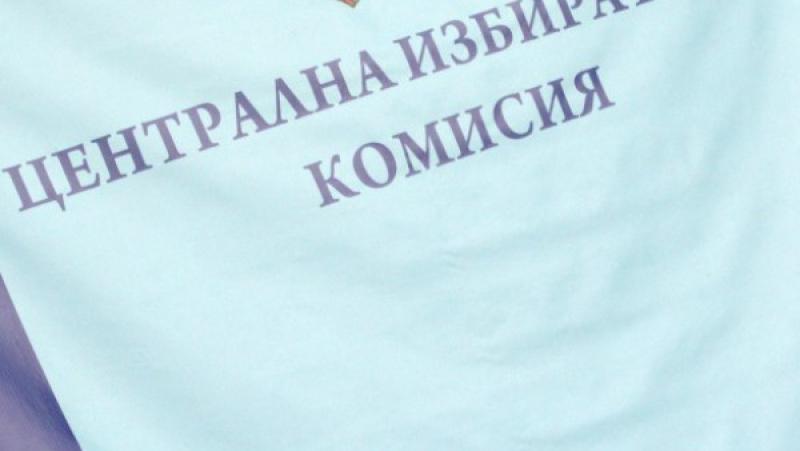/ world today news/ GERB will not reshape the quotas of the parties in the CEC despite the new configuration in the parliament and the desire of some of the parties to have their own representative in the commission.
This was announced to the “Sega” newspaper by the chairman of the legal commission in the parliament, Danail Kirilov. According to him, the imperfect text in the Electoral Code may lead to disputes about whether the new parliamentary parties are entitled to a quota.
Currently, the commission is dominated by GERB with 7 members. BSP has 6 representatives, DPS – 3, and “Ataka” and NDSV – one each, because at the time of the formation of the CEC they had MEPs. They have a mandate of 5 years and during that time they will be responsible for the organization of all types of elections. The Reform Bloc, the Patriotic Front and ABV, which are part of the government, will remain unrepresented, as will the BDC despite its two MEPs.
The direct election of regional mayors will also be preserved, despite GERB’s initial intention to return to the old situation, where they were appointed by the municipal councils. The rulers have reconsidered their position because of the possible criticism that electoral rights are being limited in this way. In addition, the proposal raised doubts about the pursuit of purely party goals, since the change would benefit mostly GERB, which manages the three cities with a regional division – Sofia, Plovdiv and Varna.
It is unlikely to proceed with the cancellation of the preferences for the local vote, commented Danail Kirilov on the occasion of publications in the press that GERB is preparing to remove the majoritarian element. Now the list of advisers can be moved if more than 7% of the personal vote is collected. According to Kirilov, there is logic in such a request, since in some municipalities 40 people will be enough to launch their favorite to the top positions. On this point, however, GERB risks being accused of inconsistency, since during the discussion of the Electoral Code it was among the strongest advocates of preferential voting.
As the local elections approach, the rulers increasingly refuse to make radical changes to the Electoral Code adopted a year ago. “If there are changes, they will be minimal,” commented Kirilov. There was talk of a new overhaul of the code along with the idea of introducing mandatory voting through legislative changes. However, it was subsequently decided to put this issue to a referendum to be held together with the local elections. President Rosen Plevneliev has already committed to initiating the poll. It is still not clear how many and what the questions will be in the referendum and whether the other proposal of the head of state will appear among them – for majority election of a part of the deputies.
#GERB #change #quotas #CEC
How do you view the demand from certain parties for representation in the Central Election Commission (CEC) following the recent changes in parliamentary configuration?
1. In light of the recent changes in the parliamentary configuration, some parties have expressed their desire for their own representatives in the Central Election Commission (CEC). As the chairman of the legal commission, what is your stance on this matter? Do you think that there is a need to alter the quota system within the CEC?
2. The Electoral Code is currently under scrutiny due to its perceived incompleteness. What measures are being taken to address this issue and ensure that all parties have equal representation in the commission? Additionally, how do you plan to avoid potential disputes over the new parliamentary parties’ entitlement to a quota?
3. The direct election of regional mayors will continue despite initial plans to revert to their appointment by municipal councils. Can you elaborate on the reasons behind this decision and the potential implications it may have on the electoral process? Furthermore, do you see any room for compromise regarding the appointment of mayors in smaller municipalities?
4. The topic of preferential voting has recently sparked debate in the media. As the chairman of the legal commission, how do you balance maintaining consistency in the electoral system while also addressing concerns about the majoritarian element and potential abuse of preferential votes?
5. The upcoming local elections have brought about discussions for revising the Electoral Code adopted last year. What changes, if any, can we expect to see in the code, and how will they affect the overall electoral process? Additionally, how does GERB plan to address potential inconsistencies in its stance on preferential voting?
6. The idea of introducing mandatory voting through legislative changes has also been proposed. As a member of the parliamentary legal commission, what are your thoughts on this matter? Do you believe that mandatory voting can increase voter turnout and engagement in the electoral process?
7. there has been talk of holding a referendum alongside the local elections to address various issues, including the electoral system and the appointment of deputies. Can you provide more insight into the upcoming referendum and GERB’s stance on it? Do you foresee any potential challenges or barriers in implementing the referendum?


